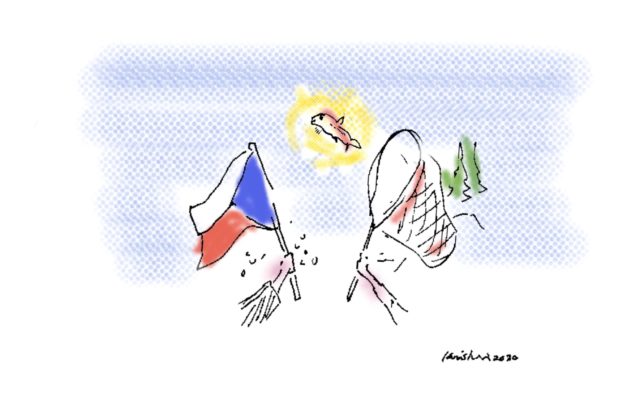For victims of state repression, the invitation into politics can be a death sentence. How can marginalized or oppressed groups bring change to systems that are predicated on their destruction? At every scale—from the neighborhood to the city to the nation—the targets of systemic attack must choose how and with whom to make politics in the midst of systems that threaten them.
This is the beginning of the editor’s introduction to a new essay of mine, “Building a Parallel Polis,” recently published by The Polity of Literature, a project of ArtsEverywhere based in Guelph, Canada. The Polity of Literature was developed, as the project description says, “in response to the widespread failure of nation-states to provide citizenship for those who need it most.”

My essay considers two widely-divergent examples of people who succeeded in their efforts to change the systems that held them down. Both are characterized by two broad concepts, one drawn from each: the “parallel polis,” proposed by Czech dissident Václav Benda in 1977 as a tool for resisting—and ultimately overthrowing—the repressive post-War Communist government in Czechoslovakia; and the “dynamics of difference,” one of an integrated set of community democracy principles seen clearly in the practices of Native American tribes in the Humboldt Bay area of California and in their successful efforts to build a tribal health center and to regain stolen land.
I became interested in the parallel polis when a friend mentioned that Benda’s ideas seemed to describe patterns in my own work and suggested I explore the relationship by writing about it. I accepted the challenge and was intrigued by what I discovered about the parallel polis. Writing teaches me a lot. I decided to further understand the parallel polis by writing about it alongside what I already knew of the dynamics of difference through work I’d done in the Humboldt Bay area. This essay is the result. It’s important to stress that, after all I learned from the two stories and the overall concepts they reveal, I believe the reach and importance of both examples are equal.
![]()
You can find my essay, “Building the Parallel Polis,” on The Polity of Literature here.
I also encourage you to read other essays on The Polity of Literature. You’ll find many terrific authors and good, provocative ideas in the sixteen (so far) other essays. The homepage of The Polity of Literature is here. You can follow The Polity of Literature on Instagram @thepolityofliterature
Click here if you’d like to know more about ArtsEverywhere, “a platform for artistic experimentation and exploration of the fault lines of modern society.”
![]()
Thank you Anne for sharing this essay. It is so relevant to what is happening in this fractured country. I hope that somehow we can come together and build a Parallel Polis.
Hi, Anne: You won’t be surprised that at the same moment your essay note came, I was reading a book you may be familiar with: The Invention of Nature: Alexander von Humboldt’s New World, by Andrea Wulf. Never really heard of the man before, but according to Wulf, more places in the world bear his name than any other person ever born. He was an amazing scientist, explorer, writer, over-achiever…the first European to see and write about the earth as a single, interrelated organism. Of course, our Native American forebears understood this long before this Prussian intellectual.